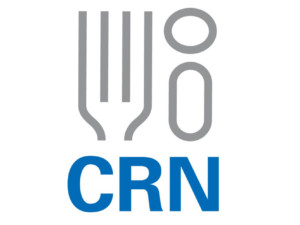Both Millennial and Boomer women will continue to drive supplement sales—many within the same categories of supplements, but for different health concerns.
The state of the market for women’s health supplements is very healthy, primarily because the core supplement shoppers are woman. According to Stacey Gillespie, director of product marketing with New Hampshire-based MegaFood, “In general, women are more proactive about their health and tend to seek out natural alternative solutions to support their immune system and general well being. The category seems to be consistently growing year over year, and the market for women’s health products tend to not be impacted by negative media or seasonality.”
Marci van der Meulen, national sales manager with California-based Nordic Naturals, retail division, agreed. “Women are the primary purchasers of health products in the natural retail space, so the market is strong. In particular, women Baby Boomers continue to be strong purchasers of products that support aging, beauty, cognition, immune support, fitness and heart health. With regard to essential fats, this age group understands the importance of supplementing with high-quality oils such as fish oil, algae, borage and evening primrose oil.”
Continued Category Success
MegaFood anticipates that the women’s supplement category will continue to grow 5-10 percent year over year, said Gillespie. “We are going to see many more products hit the market that are geared toward more mature women, because there is currently a large number of female Baby Boomers reaching retirement age, and they are looking for more products to support their overall health, energy levels, bone health and healthy aging.”
As these women mature, Gillespie noted, they are becoming more knowledgeable and are more aware than ever that beauty starts from the inside out. “A sound foundation of nutrition is key for healthy aging, so women are seeking natural ways to support this process through vitamins and supplements,” she said.
Barb Apps, business development brand manager at California-based Rainbow Light, pointed to data from Sloan Trends (October 2015) that listed personalized nutrition and nutrigenomics as a leader for the category’s success: formulas and products designed for a woman’s age, life stage, genetics and lifestyle (delivery form that will allow her to stay compliant and provide the optimal health benefit the product is designed to provide). “A company’s products need to be clean label, non-GMO (genetically modified organism), natural/organic, environmentally friendly and socially responsible,” she said.
Apps also noted that Millennials prefer alternative and “on-the-go”/convenient delivery formats than pills/capsules, which still dominate general market preferences. “As a result, marketers can offer a skin health formula in a gummy version for younger women, and a more concentrated/extra strength version for older women in tablet/capsule format,” she said. (Although the demographic driving gummy sales are adults over 55 years who have trouble swallowing or pill fatigue.) Women’s appearance, fitness and reproductive health dominate across age groups, but for different health reasons.”
Retailer Vicky Thompson, supplement manager with Sunny Bridge Natural Foods in McMurray, PA, said she found that to be true, adding that younger women who are working and have children prefer supplement combinations, such as omega-3 or calcium with vitamin D. “Baby Boomers are more traditional,” she said. “They look for liquid fish oils because they remember taking cod liver oil on a spoon as children. Also, a lot of younger women are looking for something they can throw into their smoothies.”
Dominating the Category
According to Marci Clow, RD, senior nutritionist at Rainbow Light, the health conditions women are most concerned with include:
• Reproductive Health/Infertility: Women are seeking help with reproductive health which can be attributed to many factors most notably the fact that many women are seeking to become pregnant later in life (after age 35) and end up facing fertility issues, she said. This group of women is often seeking products to either; support natural conception by boosting reproductive hormones or supplements that may boost chances of success with fertility treatments such as IVF (in vitro fertilization). Additionally, younger women of childbearing age want to do everything they can to improve chances of becoming pregnant the old-fashioned way and this group often turns to supplements to ease their often already fertile minds.
• Anti-aging: The market for anti-aging products is incredibly strong and continuing to grow, many people who fall into either the Baby Boomer or Generation X customer group are looking for products that could support maintaining their health, beauty and fitness and are willing to invest in anti/healthy aging type products.
• PMS: Women often seek herbal remedies to help mitigate symptoms like cramping, breast tenderness, mood swings, insomnia, and fatigue associated with the menstrual cycle under the general label of PMS.
• Perimenopause/Menopause: Concerns often include hot flashes, lowered sex drive, reduced vaginal lubrication, depression, fatigue/difficulty sleeping, and concerns about increased risk of reproductive cancers, weakened bones with increased risk of fractures, and accelerated aging.
Gillepsie also reported that women are seeking help with fatigue and stress. “Women, both moms and non-moms, working inside and outside of the home, juggle many day-to-day activities, which can become very tiring and stressful. Women tend to turn to supplements to ward off this fatigue and manage the stress that comes with it. Women also tend to seek help with digestive issues as many women experience bloating, gas and discomfort after eating.
New Products
MegaFood recently launched a line of condition-specific MegaFlora probiotics. The MegaFlora for Women is specifically designed to help women with both digestive issues and aid in vaginal support.*
At Nordic Naturals, van der Meulen said the newest product in this category is the Postnatal Omega-3, which offers targeted support for women postpartum. She pointed out that according to the World Health Organization (WHO), the postnatal period is one of the most critical in the life of both mothers and infants, but few products on the market address this need. “We formulated Postnatal Omega-3 knowing that this void existed, and based the formulation of this product on science that shows sufficient levels of EPA, DHA, and vitamin D hold major implications for mood. Postnatal Omega-3 supports postpartum mood health while also helping to maintain DHA levels in breast milk to support neurological development of nursing infants.”
In response to strong consumer demand, Nordic Naturals also added a strawberry flavored option to its top-selling Prenatal DHA product portfolio.
Trends for Formulating
The No. 1 deficiency for women is iron, MegaFood’s Gillespie pointed out, and the company is seeing a lot of products coming to market to help women supplement this shortage. “Healthy aging is also a top priority for women, especially Baby Boomers, so we are seeing many products that include collagen and/or biotin to support the appearance of the skin and healthy nails and hair,” she added.
Nordic Naturals, according to van der Meulen, is seeing a growing desire on the part of consumers to purchase brands they feel are sustainable, transparent and worthy of their trust. “Millennials, in particular, want to know what ingredients are in their supplements, where they came from, whether or not they were sustainably sourced, and how products are made. They want to do business with companies who are forthcoming in their labeling, and who offer third-party testing and provide certificates of analysis.”
According to Aimeé Shunney, ND, Nordic Naturals’ educator, the biggest trend that she sees (which is not necessarily new) is the desire for paraben and pthalate-free products, formulations without artificial fragrance, and the continuing demand for organic raw materials. “Women understand now, more then ever, that many of these ingredients can disrupt the endocrine system, adding to hormone balance issues, and that they also have the potential to increase chronic disease risk, including cancer. I see many women gravitating toward products with essential oils as well.”
In general, manufacturers are looking at the efficacy of products and ingredients, Gillespie added. “From a manufacturing perspective, if manufacturers want to make a health claim and are looking to create a new product, they want to make sure that the ingredients and formulations they are using are based on scientific research that works.
“For example, there is tons of emerging research on products like cranberries and probiotics which shows that when combined, both can aid in digestive issues and help support a healthy urinary tract.* That was one of the driving forces for us at MegaFood to create our MegaFlora for Women product, as there was lots of research to support the development of the product.”
Apps said Rainbow Light looks to ingredient suppliers that invest in clinical research prior to offering their products to marketers. “In Europe and Asia, many supplements are sold as over the counter or Rx (reimbursed) and are required to have published clinical data to support claims for women’s health issues. Marketing reports such as Mintel, Sloan Trends provide direction on what women are looking for in the health and wellness segment.”
As a supplement manufacturer, Nordic Naturals is always focused on emerging research to help guide product development, according to van der Meulen. “Research is a big driver for our brand as we have more than 40 published studies on our products and more than 40 currently underway. And as mentioned, the development of our Postnatal Omega-3 was founded on research that showed high dosages of EPA are critical to mood as it modulates cellular stress in the brain, which is an important concern for postpartum women.”
Manufacturers and Retailers
One of the challenges for retailers marketing these products, according to Charlene Moore, channel marketing and programs director at Rainbow Light, is truly articulating the benefits. “We know what research shows, however supplement companies are extremely limited on what they can communicate, regardless of research,” she said.
“The market is saturated with a lot of me-too’s that don’t really deliver,” Moore added. “No news there, however cutting through the clutter and noise around fleeting fads for something truly valuable takes a lot of education at all levels. Natural channels are unique in this category because the in-aisle clerks do have product knowledge and do help customers cut through the clutter to help with selection. If you haven’t done a good job in this area, you are less likely to be on shelf in the home.”
Moore noted that in store, the challenge is not only education, but also attaining the space necessary to get your message out there. Many stores are adopting a “clean floor policy” to reduce clutter however, for manufacturers it poses a challenge primarily because the inherent marketing format is small—i.e. box or bottle.
“Education is key,” she said, “and if you’re providing solid research based information, you will develop trust with retailers. Our sales model is unique in that we are able to touch the retailer at all levels—distribution, brokers and direct sales. All of our sales team also play a strong role in education while helping with basic customer service at the store level. This has made Rainbow Light a true retail partner.”
Gillespie added that marketing any supplement can be a challenge to manufacturers as there are many regulations on what a company can and cannot say about a certain product. “It’s hard to convey the benefits of a certain product in a quick sound bite to a consumer as there’s a fine line between conveying benefits and making a health claim. At MegaFood, we don’t make any outrageous health claims, and we work with respected doctors and medical advisors, like Dr. [Andrew] Weil and Dr. [Tieraona] Low Dog, to help formulate our products plus the claims to support them. It’s hard to navigate marketing a product to a woman that she will resonate with.”
The key to assisting retailers to provide the best service to their consumers is a sound education. A well-trained and informed sales force is so important since they are the ones speaking to the retailers directly. Educating retailers on top health concerns for women is important, especially since four out of five people coming to the supplement aisle are women, so that they can direct women to the right product.
Confusion at shelf continues to be a major issue with consumers, according to van der Meulen. “With a vast number of products in stores, and continued growth in the area of new products, it can make it difficult for the consumer to choose which ones might be right for them. Nordic Naturals takes great pains to educate both retailers and consumers not only on omega-3s and other nutrients, but also on how to choose a high-quality product, and specifically how to choose from our product portfolio. We also offer 24/7 online training for retail aisle workers because we know customers often rely on them for help with product selections.
“Another challenge these last couple of years has been the increase of negative media and disreputable science in the media and the impact it has had on the supplement industry in general,” van der Meulen added. “Nordic Naturals works proactively to support our retailers by educating them on how to better understand what the research truly shows and countering this misinformation when it occurs.”
Gillespie also noted the negative news coverage especially regarding weight-loss supplements, and offered her suggestions to retailers. “The best advice I can give is that if you see a company making outrageous claims about their product—such as a product promising that you will lose 10 pounds in two weeks—beware! Unfortunately, there are many companies out there that will misrepresent their products to make a sale. If you’re ever unsure about a product, call the company directly to discuss their claims. The most important thing when choosing a supplement is to seek out a reputable company.” VR
* These products have not been evaluated by the Food and Drug Administration. These products are not intended to diagnose, treat, cure or prevent any disease.
For More Information:
MegaFood, (800) 848-2542
Nordic Naturals, (800) 662-2544
Rainbow Light, (800) 635-1233













